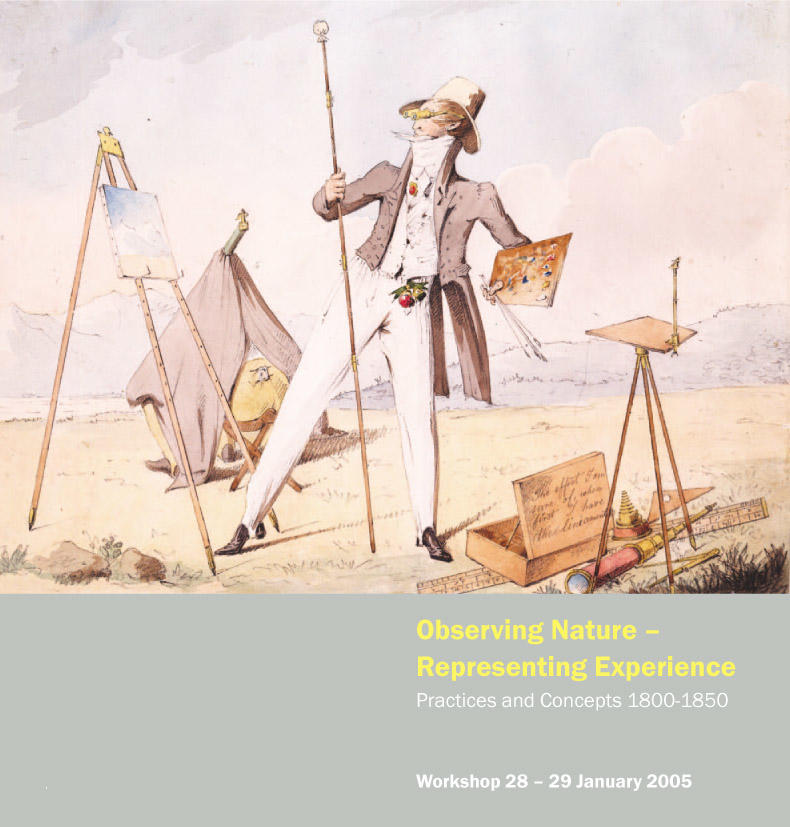Mit: Erna Fiorentini, Charlotte Klonk, Vladimiro Valerio, Charlotte Bigg, Annik Pietsch, Nino Zchomelidse, Regina Schubert, John Tresch, Bernhard Kleeberg, Friedrich Weltzien
Tagungskonzeption
During the first decades of the 19th century, the relationship between the obser vation of Nature and its recording has an own peculiarly ambivalent quality characterized by a coincidence of aesthetic experience and quantification. The workshop wants to explore this quality, which can be detected in f ields with heterogeneous intentions, from both the viewpoint of ar t histor y and the histor y of science as to:
- what was expected from the images resulting from the obser vation of natural phenomena or experiments
- the problems arising from and connected to the rendering of individual experiences of Nature
- the historical character of the ambivalence in the relationship between Nature's obser vation and recording, in order to find a key to specific concepts of aesthetic appreciation of Nature in this time.
To do this, the workshop focuses on practices of obser vation and recording, in order to discuss them in terms of both the epistemological and the aesthetic value of obser vation when related to representations or descriptions as images of individual experience. Some leading questions will be the following: Can we find normative strategies considered to allow a representation to be 'authentic' both in its relation to 'reality' and to the feeling and judgement of the obser ver? For inst ance, what was the role of selection in determining the relevant par ticular s and singularities of an obser ved phenomenon? If visual interpretation and selection were ordinar y tools for conveying the 'true shape' of the observed, in how far were such tools critically related to questions of individual experience? What was the value of 'having seen with one's own eyes' when the obser ver applied norms for the translation of experience to the production of images? To what degree was the experimental reconstruction of natural phenomena and its presentation designed to appeal to the aesthetic feeling of the spectator while conveying the 'reality' of other wise only indirectly perceivable phenomena? What was the meaning of practices in which visualization presupposed an experiencing individual when compared to procedures of mechanical registration and geometric construction of visual spaces? F inally, if we can infer from modes of obser vation and recording a def inition of the ambiguity inherent in this processes, can we also shape a formula relating this ambiguity as a historical categor y to a concept of aesthetic appreciation of Nature specif ic for this time? And can we draw on this practice-related formula to par ticularise the blurred general concept of romantic Zeitgeist?
Konzeption: Erna Fiorentini
Zeit & Ort
28.01.2005 - 29.01.2005
Max-Planck-Institut für Wissenschaftsgeschichte, Boltzmannstraße 22, Berlin

